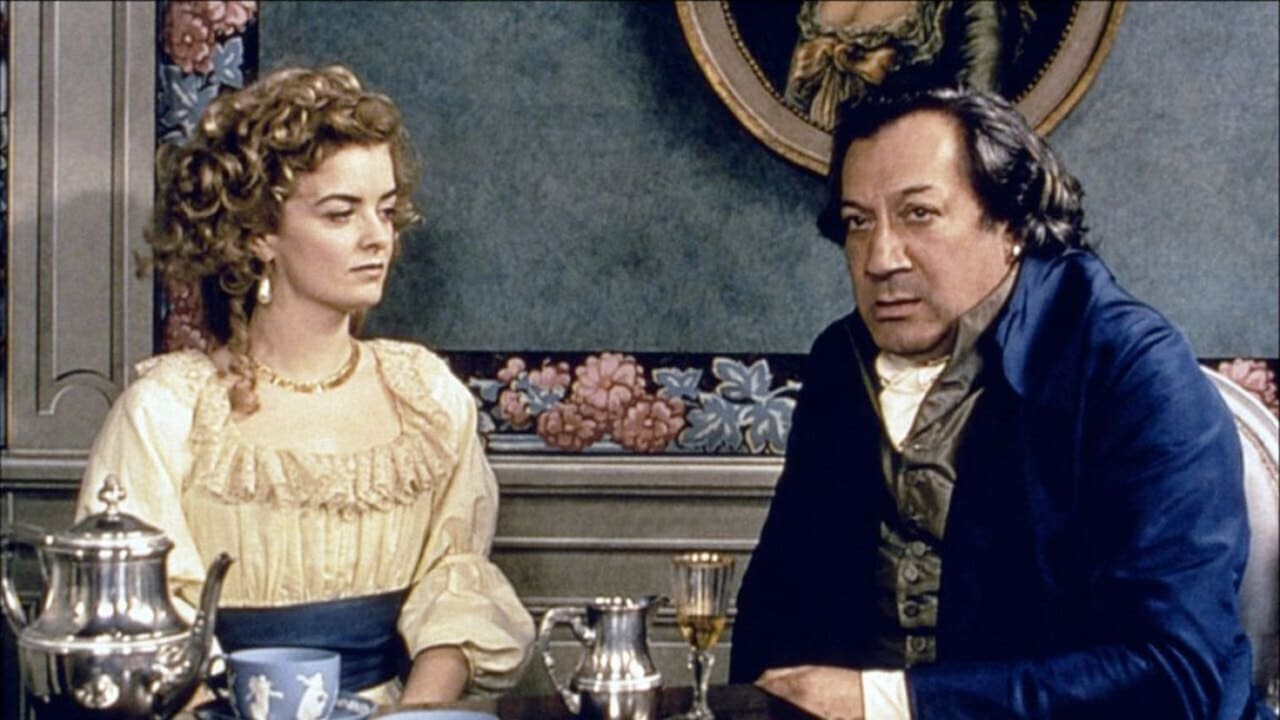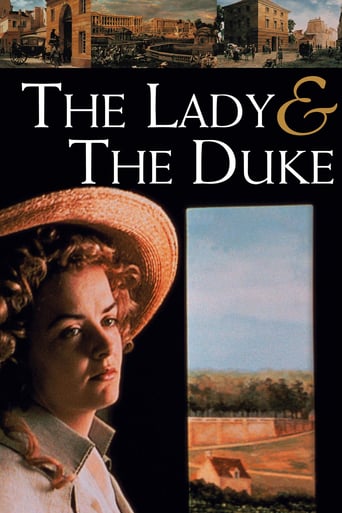



I gave it a 7.5 out of 10
Boring
Very interesting film. Was caught on the premise when seeing the trailer but unsure as to what the outcome would be for the showing. As it turns out, it was a very good film.
View MoreIt's a mild crowd pleaser for people who are exhausted by blockbusters.
View MoreI've seen a lot of films set during the French Revolution, and this odd and tiresome effort by Eric Rohmer is definitely not one of the better ones. I can't help but feel that Rohmer had some grand vision for this movie, as recreating the life and vision of some late 18th century aristocrat, and he did not entirely succeed. For starters, the film seems less 18th century and more like a late 19th century stage play- filmed in the style of an early silent film, circa 1915. One almost expects the actors to begin to gesture wildly and start rolling their eyes. Character development is non-existent, and the direction, with its paucity of camera angles, is nothing to write home about. The actors do the best they can, but there is only so much that they can do, given the clunky script and direction. I didn't find the film to be boring exactly... just odd and half-baked. The much-ballyhooed digital backgrounds add to the air of weird, never-never land detachment to the entire proceedings.All in all, this is not the worst movie I've seen, but if you really want to get into the mindframe of 18th century nobility, then I would highly recommend the 1999 Masterpiece Theater miniseries "Aristocrats," which is far more entertaining, convincing and involving than "Lady and the Duke." If you wish to see a great film about the French Revolution, then go see "La Révolution Française" with Jane Seymour and Klaus Maria Brandauer (if you can find it), or "Danton" with Gerard Depardieu. Even the 1938 "Marie Antoinette" is more interesting than the Rohmer film, and Norma Shearer's reaction to the Princesse de Lamballe's head is a great deal more powerful than Lucy Russell's.
View MoreI wanted to see this film in the theater, but after release on video finally saw it. The acting was not special even it was in French with English subtitles, the only thing I give credit to the director using outside painted background scenes with working with the actors. Using this style in the movie made the atmosphere of the picture. The acting could have been stronger using the full effect of the time period. It lack stress of emotions that the actors are feeling. The Lady and the Duke is worth watching if you like the feel of walking through art work. I would like to see more movies done this way provide that the acting is better.
View More"The Lady and the Duke" is based on a true story and taken directly from the memoirs of Grace Elliott, a well-to-do Scottish woman who lived in France during the French Revolution. The film concentrates on her months in Paris during the later years of the revolution (1793-1794), better known as the Reign of Terror. Director Eric Rohmer took the unusual and odd step of filming his actors superimposed over 18th Century scenic paintings. Perhaps it was his intention to contrast these inanimate objects with the real-life pain and utter misery of his subjects' existence. Lucy Russell is elegant and believable as Grace Elliott, a woman torn between loyalties to an old lover and her former aristocratic way of life. As the Revolution becomes more horrific, she sees all her friends who haven't been wise enough to leave France annihilated, and begins to wish she had left the country herself. Jean-Claude Dreyfus is also excellent as the Duke of Orleans, Grace's former lover who still remains a close friend. Although a royal himself, he makes the ruinous decision to vote for the King's death which has disastrous results for both himself and his country. Grace and the Duke's relationship are the centerpiece of the movie juxtaposed against the changing times and the coming doom and radical phase of the Terror. Director Rohmer's movie is both exquisitely mounted and historically knowledgeable. He has taken one of history's more volatile times and brought the audience into all the suffering and injustices of that period. Although one might need to know a bit of history regarding the French Revolution beforehand, this movie can still be viewed by anyone who has sympathy for the human condition. Man's inhumanity to Man is well on display in "The Lady and the Duke".
View MoreSpoilers herein.I am a newcomer to Rohmer?s work, having seen only two before this. But this is so intelligent, so imaginative, I must rush to see what else I can. He works with the nature of the telling by focusing on the manner of telling. Here, he selects a subject that concerns artifice and abstraction (the aristocratic manners with a former mistress, and theideals of the French revolution). And he presents them according to his understanding of how artificial and abstract they are.The presentation is shocking. If you haven?t seen it, he has flattened all the sets by literally using paintings with people superposed. This is done inside as well where all the walls are flat and have texture painted on them. Doors, cupboards also. We are transported to a theatrical world where the actors not only perform for us, the characters perform for each other. Very clever notion that reminds us how synthetic ?normal? film is.At the same time, we have Rohmer?s constant fixation with how abstract notions interact with reality. Here we have the French revolution. Unlike that which took place in North America the decade before, this was pure ideals not at all practicalized. (Dr Franklin was appalled.) And it was heavy with opportunists and posers. The notion of how things were, how they should be, how one should comport, what constitutes a ?nation,? or ?liberty? -- all abstractions. Presented in the form of dialog between two people who could not shape it.Sex is the driver here, at least of the characters we see. But it is so refined, so submerged one completely forgets the moist clutch and replaces it with the unctious glance. It seems to me that Rohmer?s relationship with his actors and the text is slight, as it should be, allowing him to focus on the space around them. Other filmmakers frame their shots around the principles and a few elements from the environment. Rohmer frames his entirely from the environment, which incidentally flattens everything -- even without the painting trick.This is the logical extension of "Marquis," May Rohmer live long enough to go further.Ted?s Evaluation: 3 of 4 : Worth Watching.IMDB: 10
View More